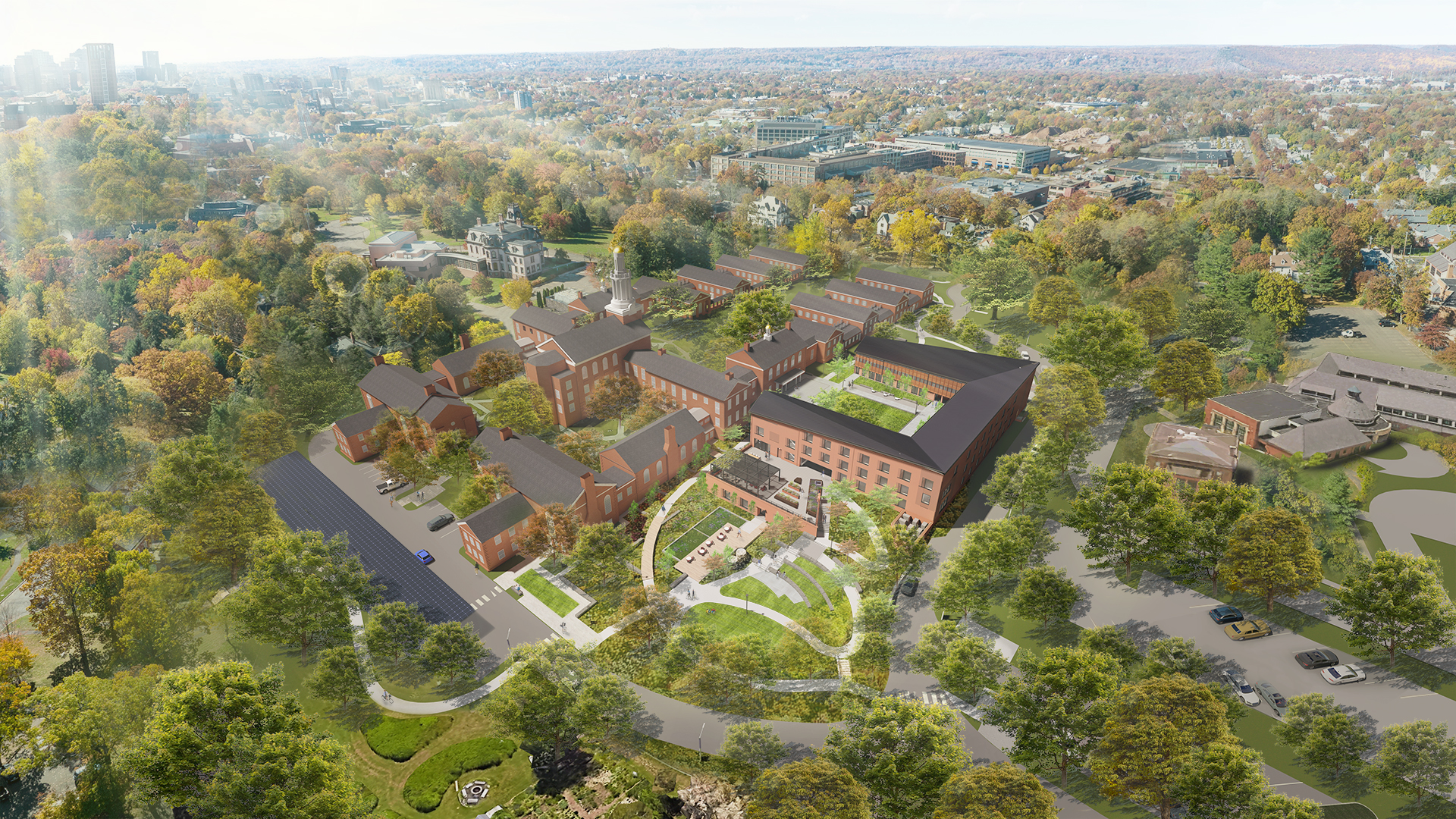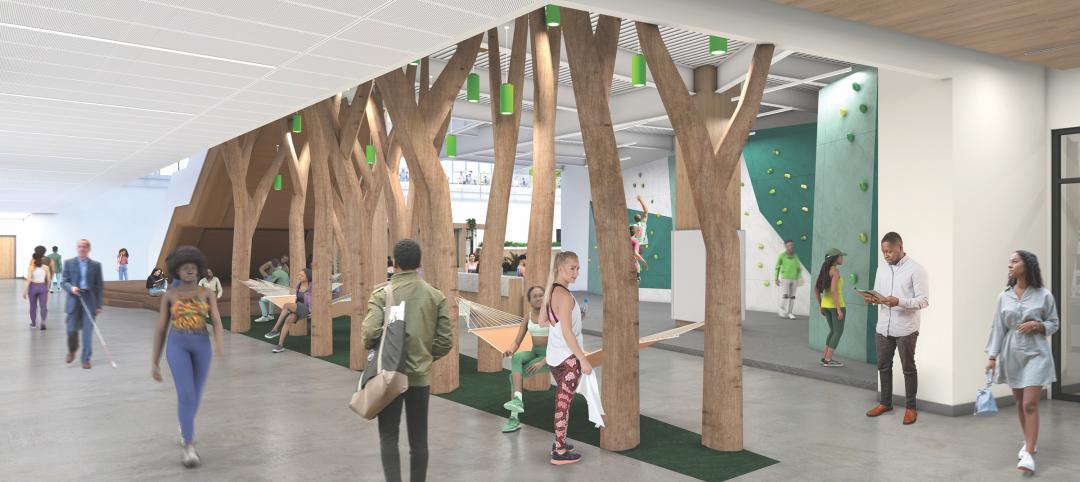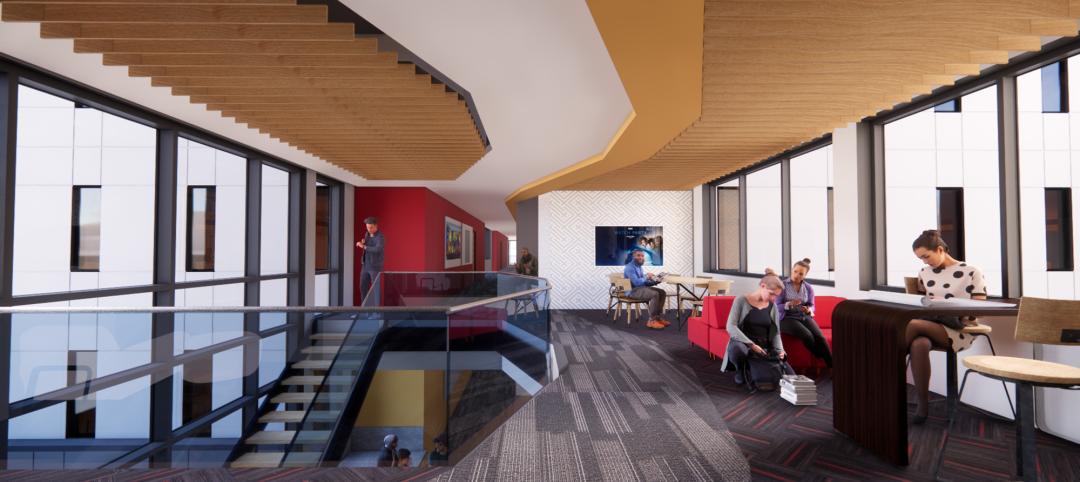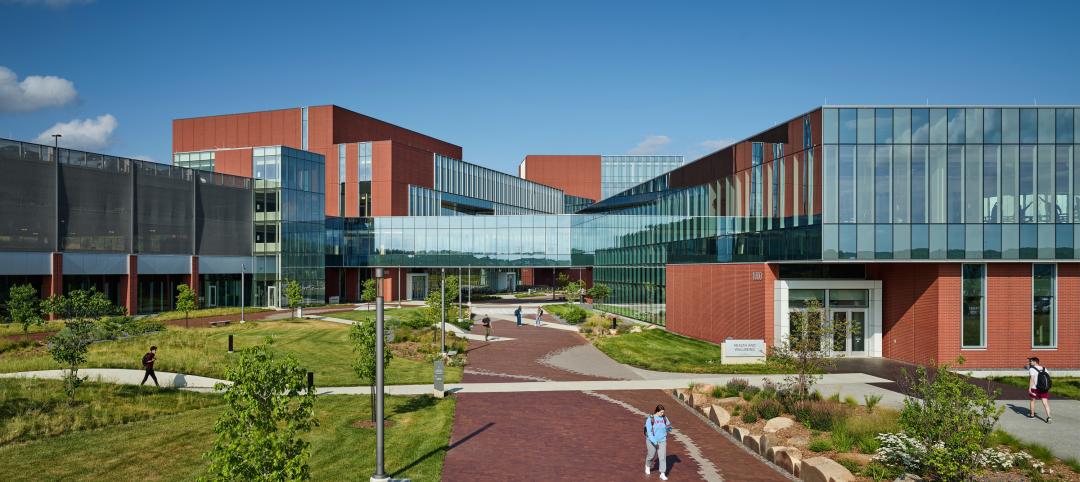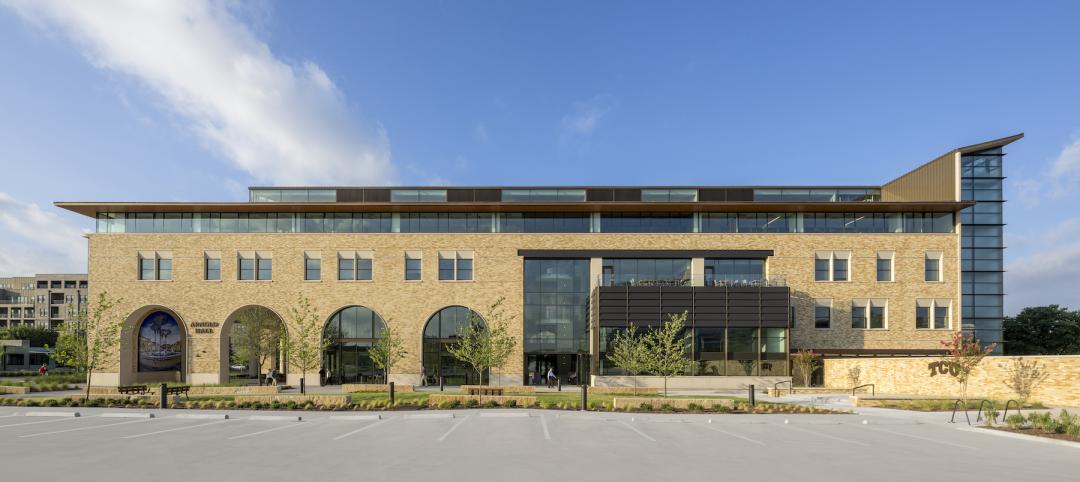A groundbreaking on Oct. 11 kicked off a project aiming to construct the largest Living Building Challenge-certified residence on a university campus. The Living Village, a 45,000 sf home for Yale University Divinity School graduate students, “will make an ecological statement about the need to build in harmony with the natural world while training students to become ‘apostles of the environment’,” according to Bruner/Cott, which is leading the design team that includes Höweler + Yoon Architecture and Andropogon Associates.
Designed to achieve 24.4 EUI (energy use intensity per sf annually), the facility will be net-positive for energy. Solar roof tiles and a photovoltaic canopy over a parking lot will generate 310,000 kWh of electricity, or 105% of the power the residence consumes averaged out over a year, according to Jason Jewhurst, AIA, Principal, Bruner/Cott.
The power system will have a net-metered connection to the grid. “We expect to generate surplus energy for six months of the year,” Jewhurst says. Ducted air-source heat pumps will provide heating and cooling. Fresh air will be supplied by a separate dedicated outdoor air system (DOAS).
A water reclamation system with a capacity for about 900,000 gallons a year will treat greywater for reuse in toilets, laundry, and drip irrigation, Jewhurst says. Underground cisterns will collect rainwater runoff from the roof.
Below-market-rate residential units will range from micro studios to one and two-bedroom apartments. A single-loaded corridor layout ensures that all rooms have views of a central courtyard. Common areas will include lounges, study nooks, and a community kitchen that will host celebrations and events. Outdoor amenities on the 4.5-acre site include an amphitheater, community terrace, and regenerative landscape over a former parking lot.
The superstructure will be assembled using low-carbon mass-timber and dimensional lumber. All building materials will meet the rigorous requirements of the Living Building Challenge’s materials petal that specifies products free of toxins and harmful chemicals.
Real-time water and energy usage monitors will provide residents and the university community with insight on sustainable buildings.
On the project team:
Owner and/or developer: Yale Divinity School
Design architect: Bruner/Cott Architects with Höweler + Yoon Architecture
Landscape Architect: Andropogon Associates
MEP engineer: van Zelm Engineers
Structural engineer: Silman
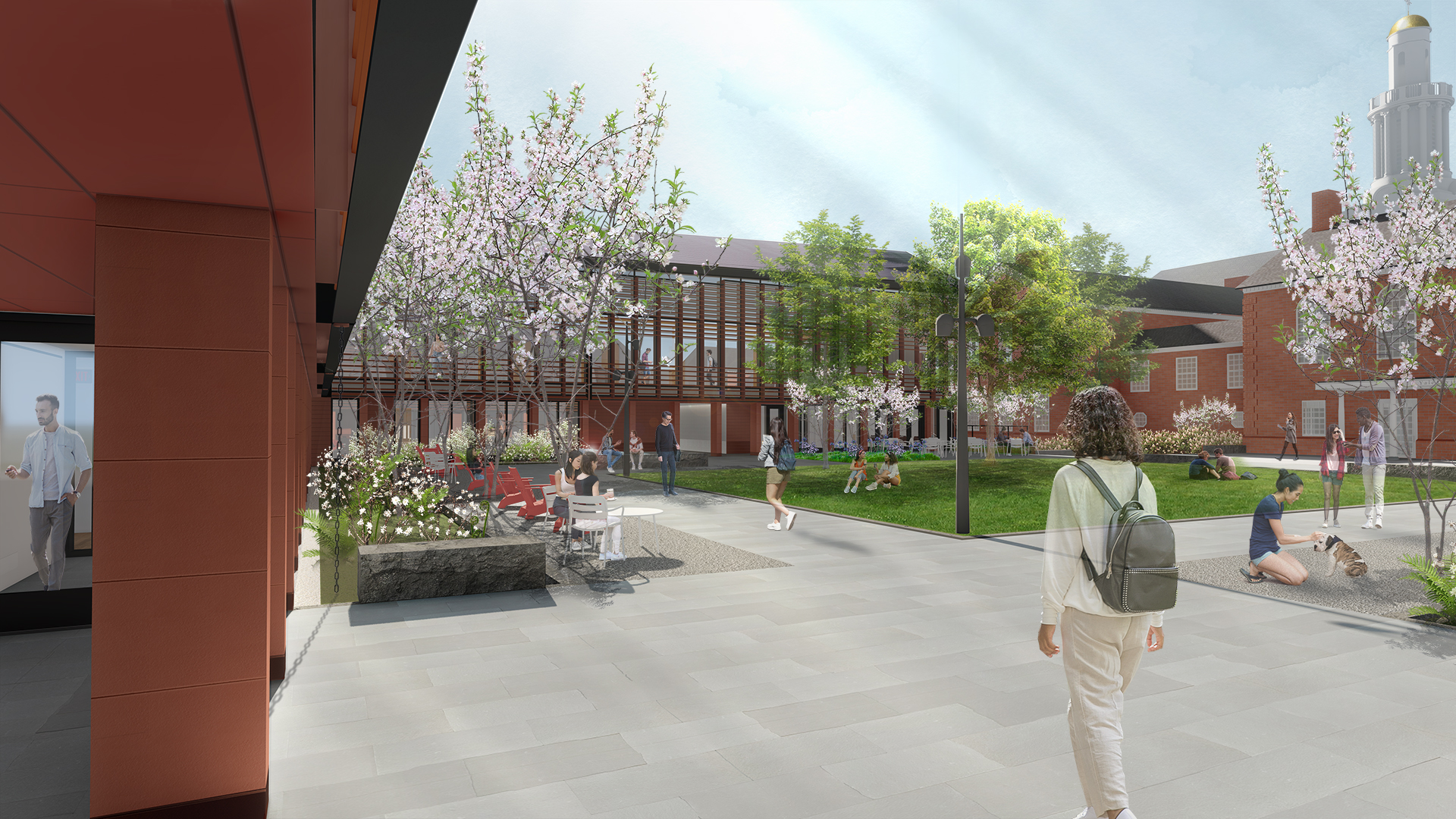
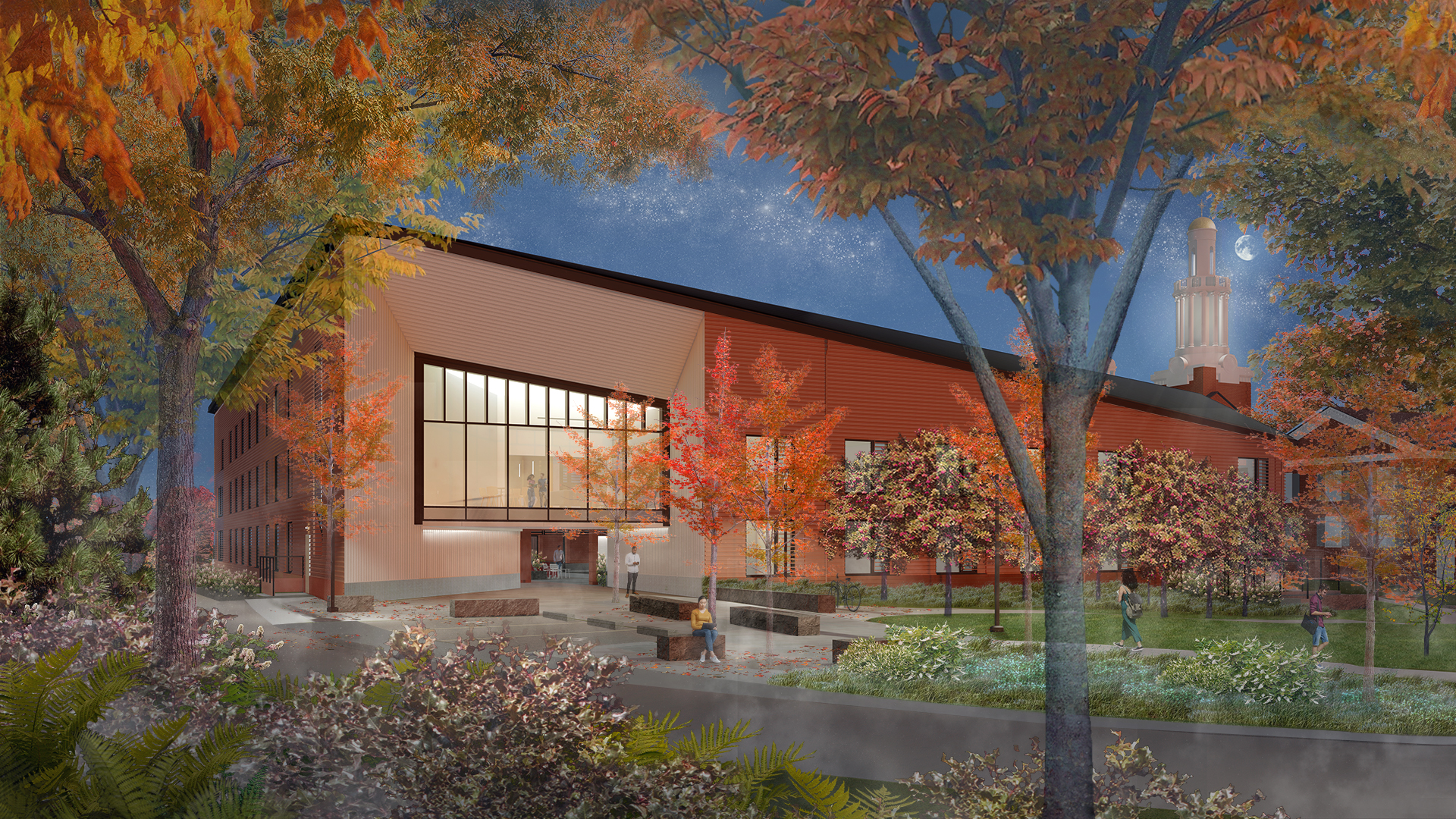
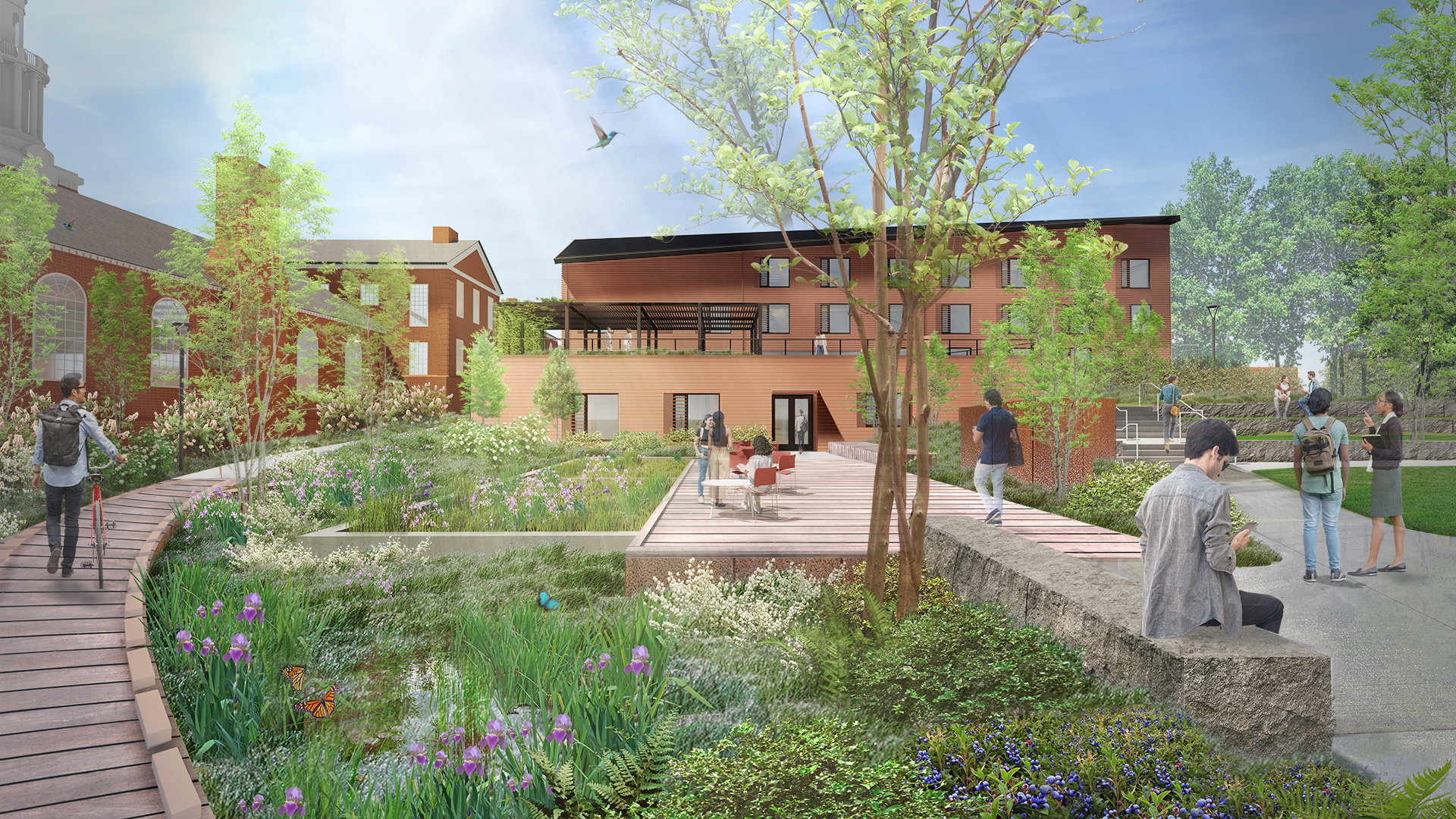
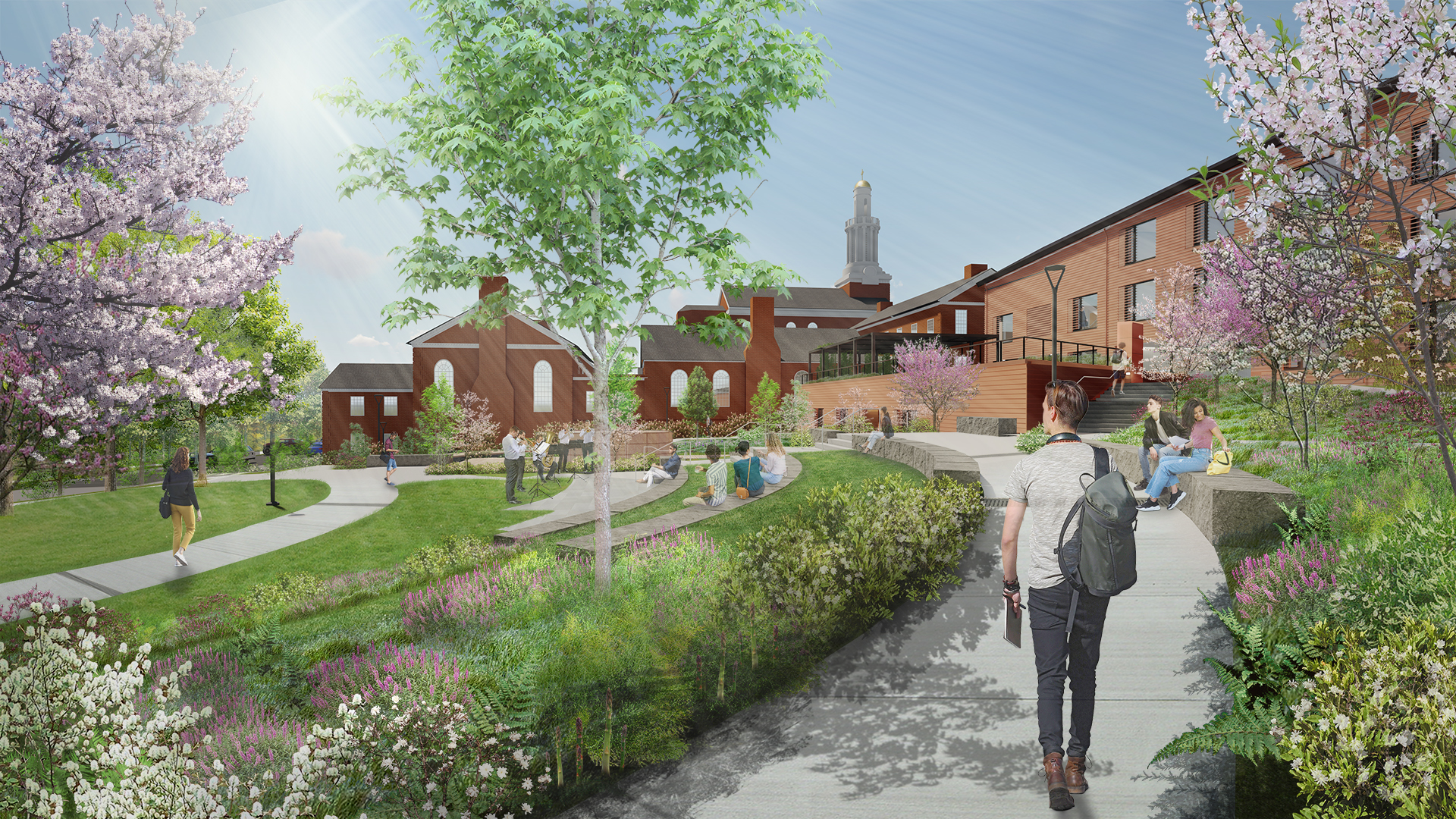
Related Stories
Libraries | Oct 30, 2024
Reasons to reinvent the Midcentury academic library
DLR Group's Interior Design Leader Gretchen Holy, Assoc. IIDA, shares the idea that a designer's responsibility to embrace a library’s history, respect its past, and create an environment that will serve student populations for the next 100 years.
Healthcare Facilities | Oct 18, 2024
7 design lessons for future-proofing academic medical centers
HOK’s Paul Strohm and Scott Rawlings and Indiana University Health’s Jim Mladucky share strategies for planning and designing academic medical centers that remain impactful for generations to come.
University Buildings | Oct 15, 2024
Recreation and wellness are bedfellows in new campus student centers
Student demands for amenities and services that address their emotional and mental wellbeing are impacting new development on college campuses that has led to recreation centers with wellness portfolios.
Higher Education | Oct 14, 2024
Higher education design for the first-gen college student
In this Design Collaborative blog, Yogen Solanki, Assoc. AIA, shares how architecture and design can help higher education institutions address some of the challenges faced by first-generation students.
University Buildings | Oct 9, 2024
Des Moines University Medicine and Health Sciences opens a new 88-acre campus
Des Moines University Medicine and Health Sciences has opened a new campus spanning 88 acres, over three times larger than its previous location. Designed by RDG Planning & Design and built by Turner Construction, the $260 million campus features technology-rich, flexible educational spaces that promote innovative teaching methods, expand research activity, and enhance clinical services. The campus includes four buildings connected with elevated pathways and totaling 382,000 sf.
University Buildings | Oct 4, 2024
Renovations are raising higher education campuses to modern standards
AEC higher ed Giants report working on a variety of building types, from performing arts centers and libraries to business schools. Hybrid learning is seemingly here to stay. And where possible, these projects address wellness and mental health concerns.
Museums | Oct 1, 2024
UT Dallas opens Morphosis-designed Crow Museum of Asian Art
In Richardson, Tex., the University of Texas at Dallas has opened a second location for the Crow Museum of Asian Art—the first of multiple buildings that will be part of a 12-acre cultural district. When completed, the arts and performance complex, called the Edith and Peter O’Donnell Jr. Athenaeum, will include two museums, a performance hall and music building, a grand plaza, and a dedicated parking structure on the Richardson campus.
Higher Education | Sep 30, 2024
Studio Gang turns tobacco warehouse into the new home of the University of Kentucky’s College of Design
Studio Gang has completed the Gray Design Building, the new home of the University of Kentucky’s College of Design. In partnership with K. Norman Berry Associates Architects, Studio Gang has turned a former tobacco warehouse into a contemporary facility for interdisciplinary learning and collaboration.
University Buildings | Sep 24, 2024
Texas Christian University opens new medical school building
The facility is designed and programmed to anticipate advances in medicine and technology.
Designers | Sep 20, 2024
The growing moral responsibility of designing for shade
Elliot Glassman, AIA, NCARB, LEED AP BD+C, CPHD, Building Performance Leader, CannonDesign, makes the argument for architects to consider better shade solutions through these four strategies.



